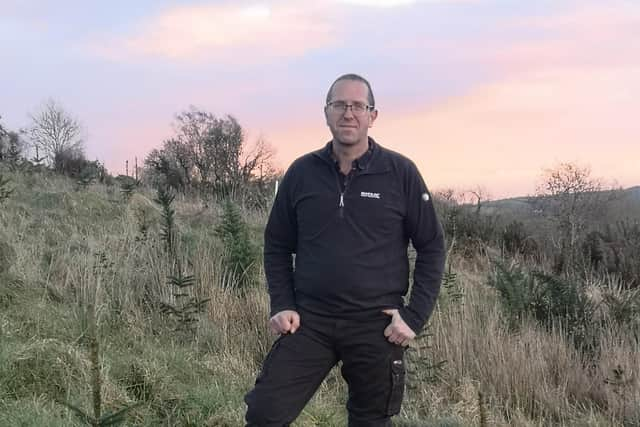‘Forestry sector enjoys a busy start to 2021’
and live on Freeview channel 276
In tandem with this activity Premier Woodlands’ staff have been marketing blocks of commercial timber, for clients, within a number of plantations established between 30 and 40 years ago.
Demand for timber remains strong internationally. This is particularly the case in Northern Ireland as current delays in the securing of tree felling licences across the border is increasing the demand for locally produced timber stocks.
Advertisement
Advertisement
Premier Woodlands market timber as a standing sale of trees which have a valid Felling Licence in place. Sawmills value stands of timber by measuring diameters of trees and assessing quality. They then make an offer per tonne for the standing timber. Good quality trees which can be sawn into a range of products at the mill will attract a better price. With standing timber sales, the purchaser is responsible for harvesting, extraction and haulage of the logs. Each lorry load of timber is weighed as it enters the sawmill and the forest owner is paid on the tallied weight times the agreed price per tonne.


The good news is that plantations as young as 30-years old grown in Northern Ireland can yield high quantities of top quality saw logs. Significantly, the income generated from these sales is free of income tax.
The run-up to the New Year was marked by the opening of the Small Woodland Grant Scheme (SWGS). This is a new forestry support measure and, in many ways, mirrors the measures made available within the former Environmental Farming Scheme. The initial application period for SWGS ends on February 28. The scheme requires a minimum of 0.2ha of land to be planted out in trees. Native broadleaf species only have been specified: oak, hazel, birch etc. The planting density is 1,600 tress/ha with an individual 2.5m by 2.5m per tree. This will include a 10% open space criterion.
The SWGS support payments are very attractive. An establishment grant of £2925 per hectare is available. Eighty per cent of this money will be paid in Year 1 with the remainder following in Year 5. An annual payment of £350/ha will be paid for the ten years of the scheme. This is on top of the Basic Payment, if the landowner has been claiming it in the past. All planting and fencing work approved for the 2021 planting season must be completed by the end of May this year. This leaves quite a short timescale for landowners wishing to plant woodlands this season, however the SWGS will re-open during the summer for planting in the 2021/22 season. As the season progresses into mid and late spring availability and choice of tree species, in particular broadleaves, will start to run short.
Advertisement
Advertisement
Discussions with other Forest agents are leading to the consensus that approvals for all woodland grant schemes should be given much earlier in the planting season. This would allow us to spread the workload over a longer planting season and ensure the availability of the selected tree species from nurseries.
Premier Woodlands believes the FWGS to be a very attractive incentive towards new woodland creation. All farmers, landowners, charities and local councils are eligible for the measure. In the case of local councils, eligibility is restricted to the initial planting grant only. Applications must be made via the DAERA online services’ portal. Premier Woodlands’ staff will be available to help with the application process. For further information, contact Premier Woodlands on (028) 7963 4236.